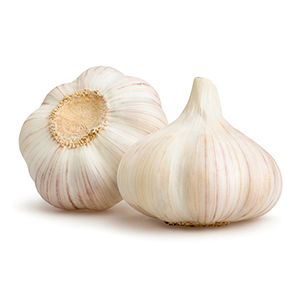Garlic, a common culinary ingredient, is celebrated not only for its distinctive flavor but also for its myriad health benefits. Rich in nutrients such as vitamins C and B6, manganese, and selenium, garlic is known for its potent medicinal properties. One of the primary benefits of garlic is its ability to boost the immune system. Allicin, the active compound in garlic, has been shown to enhance the response of white blood cells to viruses, which aids in fighting infections and bolstering overall immunity. Additionally, garlic has anti-inflammatory properties that can help reduce the risk of chronic diseases, such as cardiovascular disease. Regular consumption of garlic has been associated with improved heart health, including lower blood pressure, reduced cholesterol levels, and decreased risk of atherosclerosis.
Garlic also plays a significant role in promoting kidney health. The kidneys, which are responsible for filtering waste products from the blood and maintaining fluid and electrolyte balance, can benefit greatly from the properties of garlic. The anti-inflammatory and antioxidant effects of garlic help protect the kidneys from oxidative stress and inflammation, which are common contributors to kidney disease. Furthermore, garlic has been found to have diuretic properties, which can aid in the management of high blood pressure, a major risk factor for kidney damage. By promoting the excretion of excess sodium and water, garlic helps maintain optimal blood pressure levels and reduces the burden on the kidneys.
Moreover, garlic may help prevent the progression of kidney disease in individuals with diabetes. Diabetic nephropathy, a common complication of diabetes, involves damage to the kidneys due to high blood sugar levels. Studies suggest that garlic can help regulate blood sugar levels and improve insulin sensitivity, thereby mitigating the impact of diabetes on the kidneys. The sulfur compounds in garlic, such as allicin, have been shown to exhibit protective effects against nephrotoxicity, which is damage to the kidneys caused by harmful substances. By enhancing antioxidant defense mechanisms, garlic helps to shield the kidneys from various forms of toxic damage, ensuring their proper function and longevity.
In summary, the health benefits of garlic extend beyond its culinary uses, encompassing a wide range of medicinal properties. Its immune-boosting, anti-inflammatory, and antioxidant effects contribute to overall health and well-being. Specifically, for the kidneys, garlic offers protective benefits against oxidative stress, inflammation, high blood pressure, and diabetic complications. These benefits highlight the importance of incorporating garlic into a balanced diet to support and maintain kidney health.
